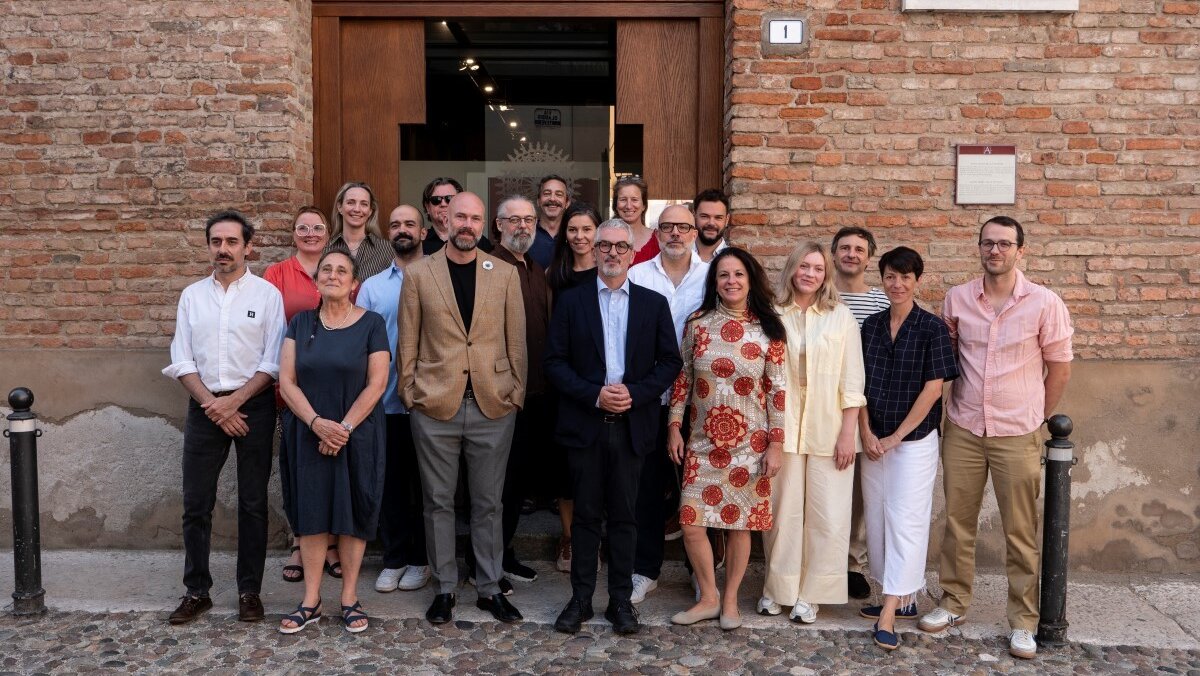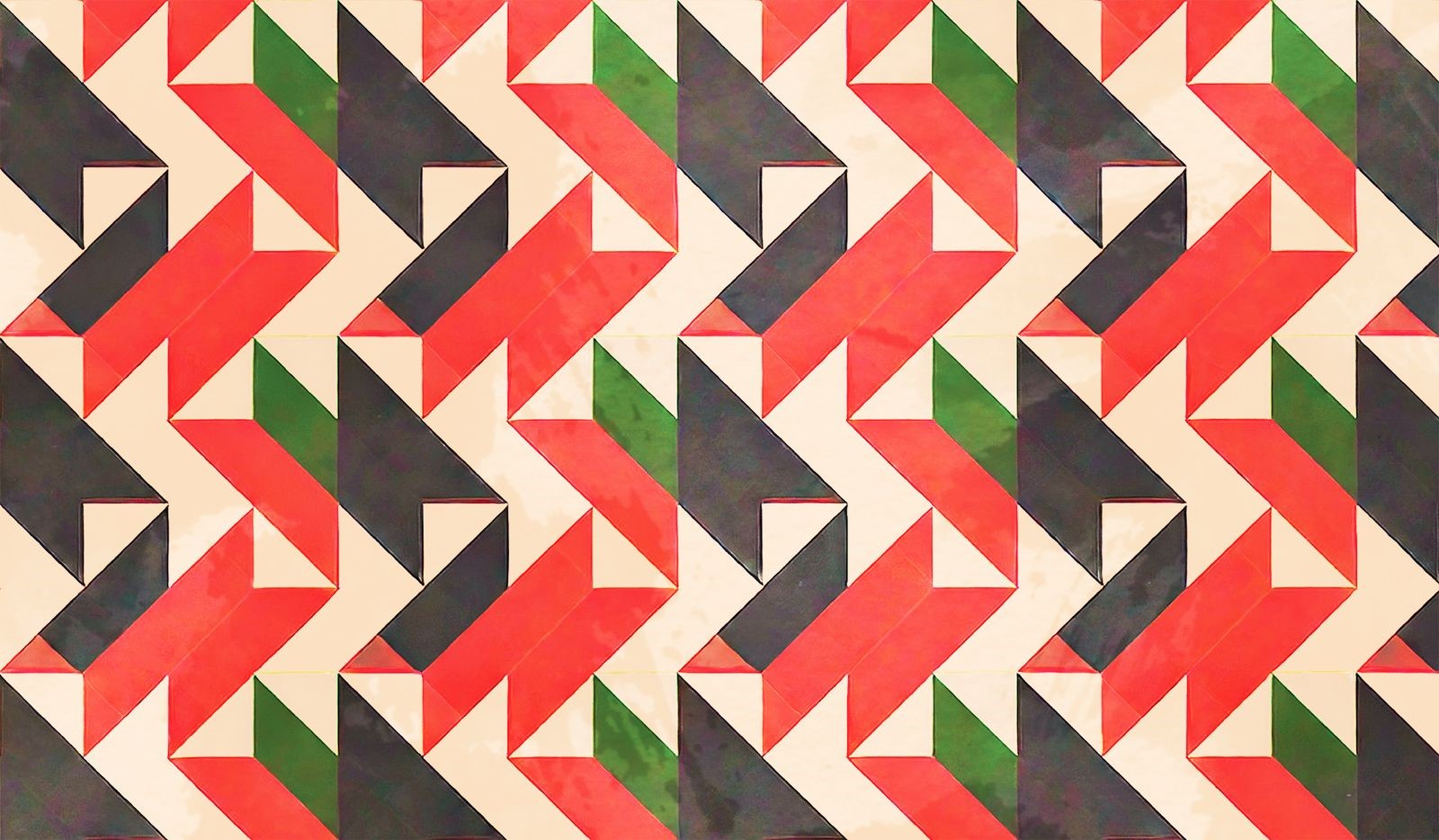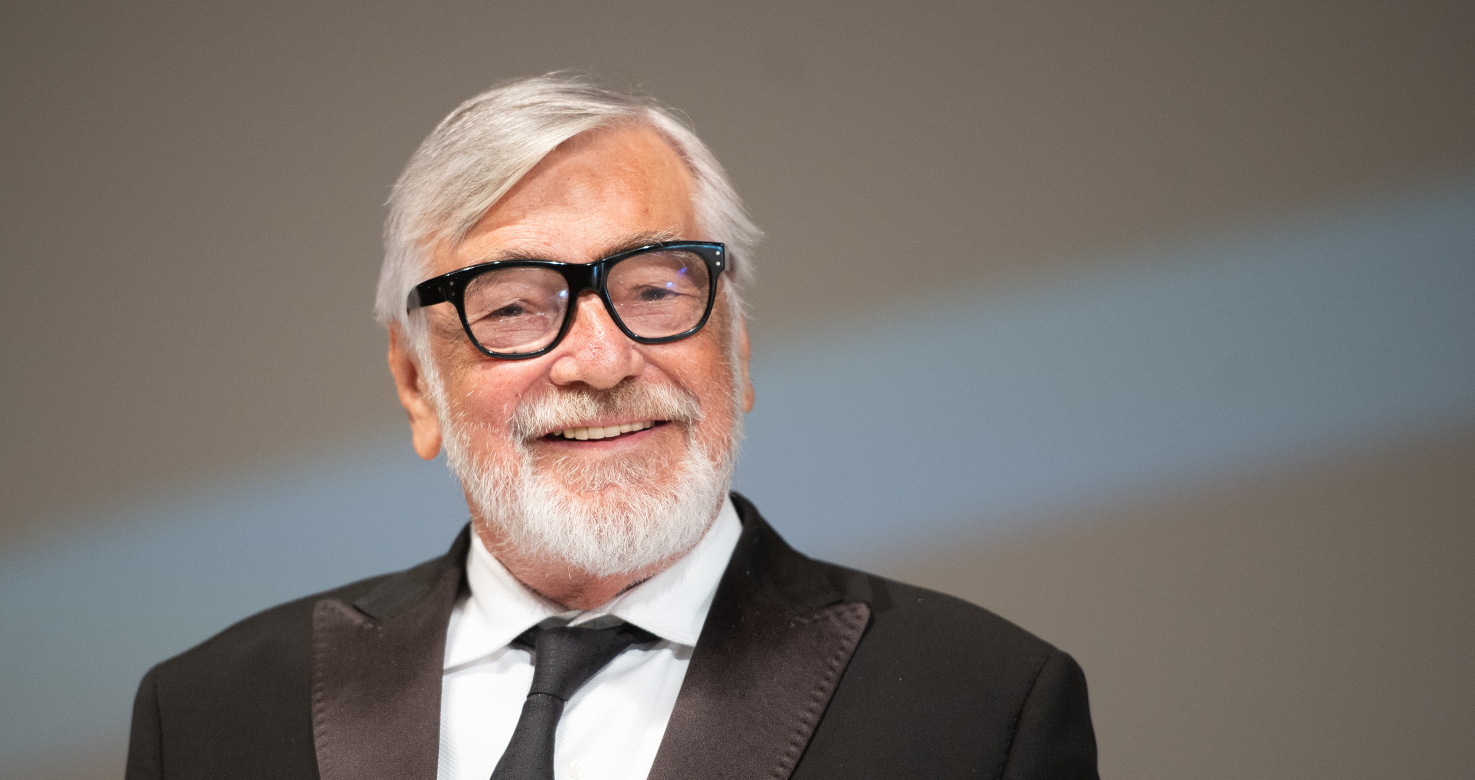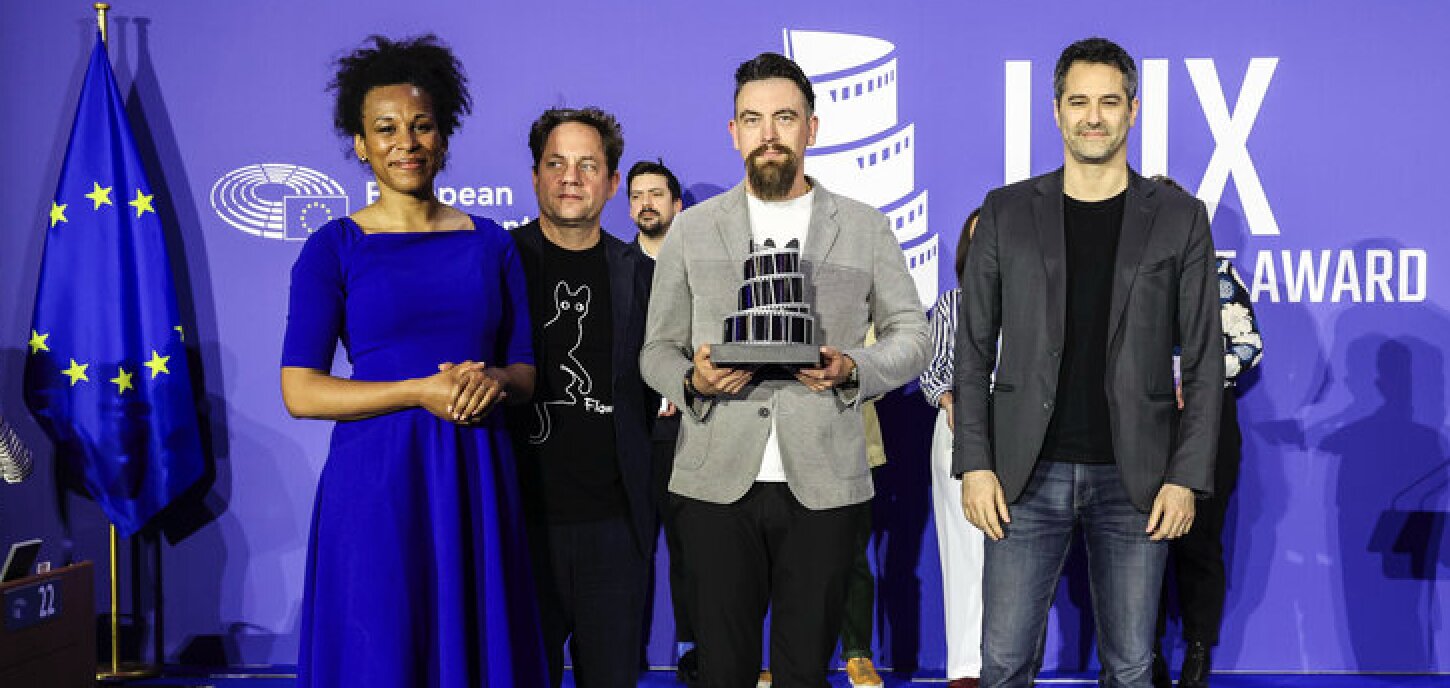A Man of Few Words
A Man of Few Words
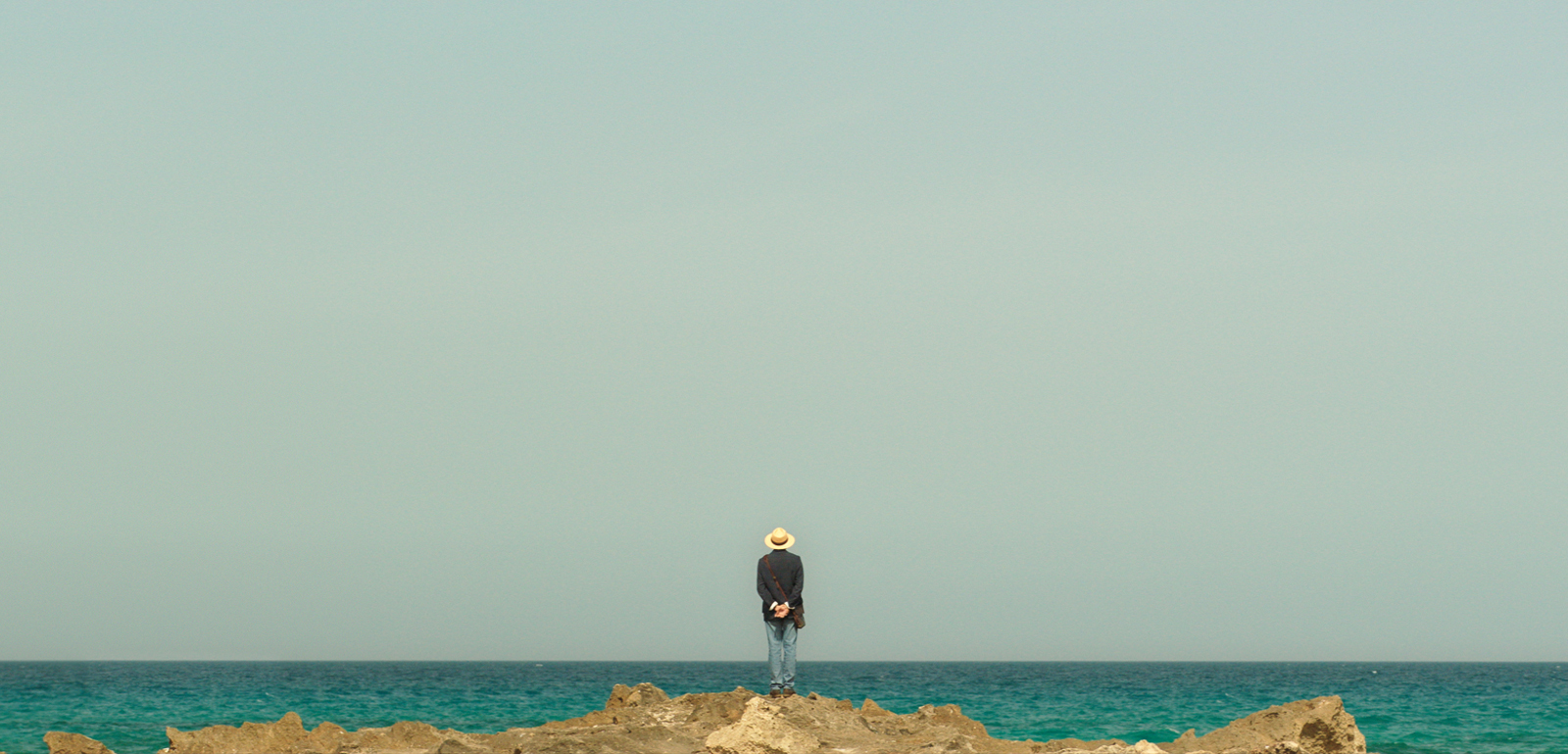





Elia Suleiman Receives the European Achievement in World Cinema Award
Elia Suleiman Receives the European Achievement in World Cinema Award
by Iryna Zubenko
Hailing from Nazareth, Palestine, director Elia Suleiman certainly knows about being a stateless man in a world full of borders. Between 1982-1993 he lived in New York, where he took his first steps in the film industry. His directorial debut was a short film INTRODUCTION TO THE END OF AN ARGUMENT (co-directed with Jayce Salloum), which he followed up with another short film, HOMAGE BY ASSASSINATION. In 1994, Suleiman moved back to Palestine to teach. With the support of the European Commission, he developed a brand-new Film and Media department at Birzeit University, the leading Palestinian higher education institution that focuses on advancing science and humanities. Currently, he resides in Paris.
Suleiman has successfully turned his immigrant background into a powerful tool, central to his craft. While his homeland of Palestine takes centre stage in Suleiman’s work, he admits it’s not just Palestinians he’s talking about. Most of his work skewers globalisation and the challenges it has brought, including armed conflicts and the climate crisis.
Suleiman’s debut feature, CHRONICLE OF A DISAPPEARANCE, won Best First Film at the 1996 Venice Film Festival, laying the foundation for the director’s flourishing career. A mix of somewhat unrelated cinematic tableaux, CHRONICLE OF A DISAPPEARANCE examines the Israeli influence over the Palestinian population. Suleiman uses his privilege of being both a local and an expat to guide viewers through the life and history of the region, often through the memories and experiences of his friends and family members – or himself.
DIVINE INTERVENTION, Suleiman’s 2002 film, depicts a day in the life of a Palestinian living in Nazareth. Its episodic, sharp-eyed, and finely observed scenes of daily life and political struggle come mainly from the director’s personal background. DIVINE INTERVENTION received the Jury Prize and the FIPRESCI Prize at the 2002 Cannes Film Festival and was nominated for the Palme d’Or. It also won the Screen International Award at the European Film Awards and made headlines internationally for being rejected as a submission to the 2002 Academy Awards on the grounds that the [US] Academy didn’t recognise Palestine as a state at the time.
Suleiman participated with his film THE TIME THAT REMAINS in the 2009 Cannes Film Festival, competing in the official selection category. It won the Jury Grand Prize (in a tie with ABOUT ELLY) at the 2009 Asia Pacific Screen Award and the Critics Prize of the Argentinian Film Critics Association at the Mar del Plata International Film Festival. Being partially based on the private diaries of Elia’s father, the film gives viewers an overview of the history of the Israeli state from 1948 to the present. Much like in his two previous films, Elia Suleiman appears on screen as a laconic passer-by, and yet he is every bit a character. Credited as E.S., Suleiman modestly refers to himself in the film as “a present absentee.”
After a 10-year feature hiatus, Suleiman returned in 2019 with IT MUST BE HEAVEN. This existential comedy competed for the 2019 Palme d’Or at Cannes and was selected as the official Palestinian entry for the Oscars. Suleiman, who stars in his film again, goes on a journey from Nazareth to New York via Paris. IT MUST BE HEAVEN is another example of Suleiman’s ability to transfix audiences with his unique humour and sparse dialogue.
Unsurprisingly, given his background, Suleiman sees his films as a microcosm of societal discussions. He says: “My images carry exactly the same risk as democracy. I’m taking the risk that some of them can be misread, but I can’t impose my own views.” The European Film Academy will honour Elia Suleiman’s contribution to the film industry with the European Achievement in World Cinema Award at the 2022 European Film Awards in Reykjavik on 10 December. Elia Suleiman is the first Palestinian director to receive this prestigious award.
—
Iryna Zubenko is a Ukrainian currently based in Reykjavik, Iceland, and writing for “The Reykjavik Grapevine”. For the last five years, she has been working on the cross-section of media, marketing, and technology, organising award-winning tech conferences, and editing a corporate tech magazine. In 2022, she participated in the European Film Academy’s “A Sunday in the Country” for young critics and film journalists.

